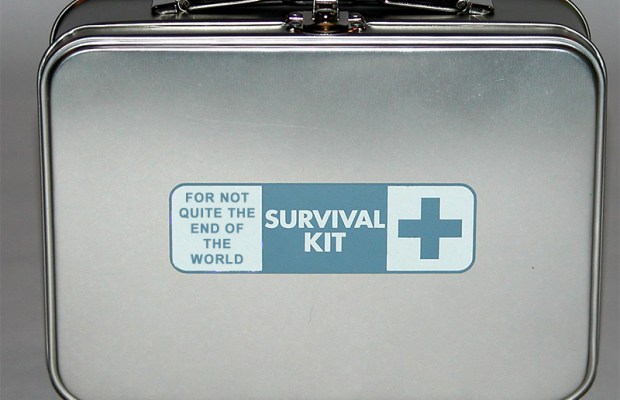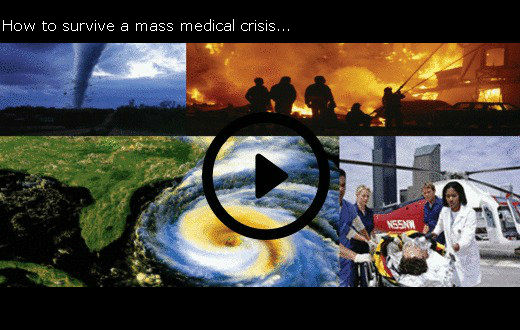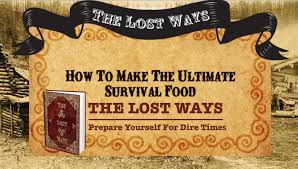Preppers are a resourceful group of people and there aren’t too many dire situations we don’t have some type of prepared response for ready in our minds. Our plans and preparations for survival are expansive and limited in most cases only by our imaginations or our paycheck. You name the disaster and we have got the bases covered in terms survival kit, our basic needs, bug out plans and tactical DEFCON 1 defensive measures.
But there is still a large number of people in the world who simply don’t see the same value in preparing as preppers do. I personally think that number is coming down, but like everything else, there are degrees of urgency based upon your own situation and each individuals’ views of likely risks as you see them. I know friends who 4 years ago would laugh at the mere suggestion that our country could have anything approaching an economic collapse but who now, at least in conversations, agree that the future looks a little dimmer than even they had imagined. They can now freely admit that they have a sense that there will be bumps ahead, but disagree on how much you should worry about or prepare for any ‘potential’ disaster. They can acknowledge increased risks but they don’t feel inclined to do too much about it.
Then there are other people who never in a million years believe anything bad like economic collapse, pandemic, war or outright tyranny could happen in this our enlightened society. They also believe that the mere thought of bad people getting together to do bad things and not tell anyone (conspiracy) is a sign of mental illness. Sure they will agree that monstrous atrocities have happened in our collective past but rationalize that away because people were less educated, or concede it is limited today to a few violent places in third world countries. They will tell you that as a modern, interconnected world we are so much more thoughtful and considerate now. Rational discourse rules the day.
They have no doubt seen far too many Oscar award-winning, tear-jerking movies about bad people and bad situations to believe that any tragedy on a similar scope could befall us in these progressive times. These bad stuff deniers seem to have this view of the Star Trek ‘United Federation of Planets’ utopia where everyone gets along (usually) and there is peace and harmony across the cosmos if only the smart people (elites) are in charge. Sounds nice doesn’t it?
Well, even these people who have watched far too much TV and rely too heavily on the wizards of smart can admit that even if we don’t have Klingon battle cruisers outside our Solar system, you can have storms, both literal and figurative that wreak havoc with our peaceful civilization.
Even Prepping Deniers want a backup plan
Understanding that there are people like those I mentioned above out there, some of whom we are even related to, I wanted to try to put a less ominous spin on Prepping for the benefit of those who need some additional encouragement. You can still have some level of preparedness without going to the lengths that others of us choose to do. Granted, you are only going to be as prepared as the level of time and energy you put into it, but something is better than nothing.

Even if you don’t believe anything bad can or will ever happen, wouldn’t you feel better with a just-in-case survival kit of items on hand?
To that end, I wanted to put together a list of common sense survival items to have on hand just in case, barring all logic and the goodwill of your fellow enlightened souls, something bad does happen and you are forced to rely on your own self for survival. These survival items are multi-purpose should be non-threatening to anyone out there. I won’t mention camouflage or firearms of any type today but I thought a simple list of items to go into a survival kit for not quite the end of the world could still come in handy to you out there someday.
This survival kit and the items below should be something that anyone can store in a closet of your home, nicely out-of-the-way and hidden from all your friends who would react with horror and derision at the mere hint you were taking any of this ‘prepping nonsense’ seriously. It may not be enough to keep you alive if we really do have a SHTF event, but it will help in many situations where it’s not quite the end of the world.
So for those of you who can foresee some minor inconveniences in life that are worked out shortly, but still want to be prepared, a little…. This list is for you.
Simple Survival Kit List
Backup Power – When the power goes out, it’s good to be able to replace that electricity isn’t it? You can do this in many ways according to how much you want to spend, but let’s assume that a whole home generator is not what you had in mind. Neither is a noisy portable generator. You can still have a fairly reliable source of backup power with a solar panel charging kit like the EnerPlex Kickr IV Portable Solar Charger. This set of panels allows you to roll it out and charge up your cell phone. Add something like Generatr S100 Portable Battery and you can charge a larger battery that will in turn recharge more devices. Another thing to consider with this is having extra batteries on hand should the power go out. I have Sony Eneloop rechargeable batteries but there are many other types of rechargeable batteries that I can use in almost all of my devices like radios and flashlights. I also have spare USB type batteries like a portable RavPower 16750mAh USB charger that sits fully charged. With this one unit, I can charge my iPhone 6 times.
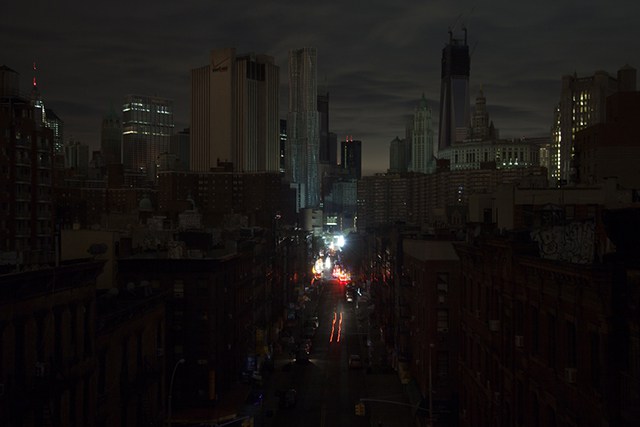
Blackouts happen all the time.
If all that fails, you can also purchase a simple 1000 W inverter to plug into your car’s adapter to provide power to larger appliances or recharge your batteries much faster. Just make sure you have extra fuel stored for your cars too.
Lighting – Even during the bright hours of the day, if you are stuck inside, you could be in the dark, literally. Flashlights are a must have for power outages even during the day. You can choose from a lot of options like a bright tactical flashlight to something you attach to your key-chain but for the best of both worlds I like a headlamp. This way I can have the light automatically shine where my eyes are pointed and my hands are free to do whatever task I need to. Have one source of light for every family member.
Money – When the power goes out, so too usually goes your ability to get money out of the bank or ATM or make purchases without cash. Almost all point of sale systems rely on electricity and now the internet. so having a small stash of cash on-hand makes pretty good sense. Just a couple hundred dollars could buy your family food, get a hotel room in another state or purchase gas to power your car. Make sure you keep some on you and some hidden at home. You can hide some spare emergency cash in between your phone and the phone case and always have a backup. Have at least $200 in cash where you can get to it. Smaller bills (20’s) are better.
Food – Who wants to go hungry during a power outage or short-term emergency? You can either keep more food stored at home, or purchase food for emergencies. The former will give you better tasting food, but the later requires a little less discipline. Storing extra food in your survival kit keeps everything in one place, but it does take up additional room. Ideally we wouldn’t lose that space to something you already have storage options for, but it may work out better this way.
Along with actually storing and having access to food to eat, you need a way to cook it unless you want to eat a lot of cold canned food. One of the better options I have found is simple freeze-dried camping meals. All you need for these is hot water which you can either heat over a fire outside or with a small camping stove like the JetBoil. Sure the freeze-dried meals aren’t going to be the healthiest options but for short-term situations like this they store nicely, pack a pretty decent amount of calories (make sure you check first) and are filling. I would much rather eat a warm packet of Mountain House Chili-Mac than eat a cold or even warm can of beans. Have enough meals for 5 days for each family member.
Water – Water is one of the trickier items if you consider it. It is all around us usually, but clean drinking water may be hard to come by at times. If the water isn’t coming from the faucet, you might need to find a source. Fortunately, in most climates, there is water around us in lakes, pools, hot-tubs, water heaters and streams. You should store one gallon of water per person per day. We have been going with 5 days so far, so plan accordingly.
Having water on-hand is the best, but just in case, you need a water filter too. For the most basic needs, you can boil water for a minute to kill any bacteria. Filters like the gravity filters from Platypus allow for a lot of water filtration plus carrying capacity in a short time. LifeStraw makes an individual option too that is cheaper, but you can’t filter a large amount of water using one of these easily. Compared to boiling, purification tablets and the LifeStraw, I prefer the gravity fed options best.
Do you have a supply on cash just in case the banks don’t let you in or the ATM machines aren’t working?
Shelter – We will assume that you have shelter since this is not quite the end of the world and heat isn’t something you can easily plan around without power. Cold is something that can be easily addressed with a little more preparation. For this a good three season sleeping bag is a nice item to have for each member of your family. Optionally, you can go with something like the puffy blanket from Rumpl which packs down small and will keep in body heat. Hats and gloves are good also.
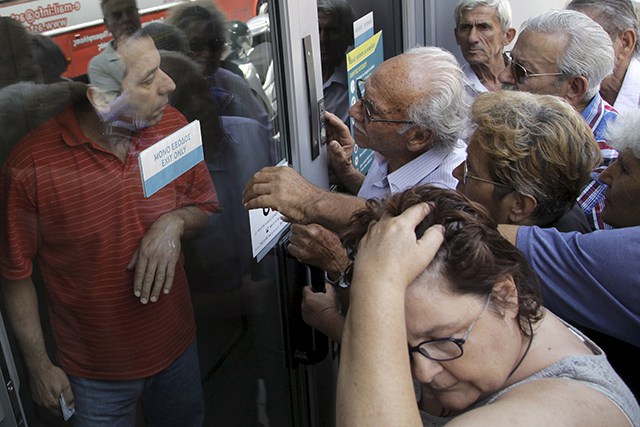
Communications – A simple weather radio will help you stay in touch with what is going on and you can even use some of these to charge your portable devices and also see in the dark with the included flashlight. No, you won’t be able to communicate out, but you can stay informed.
How do you store your survival kit?
For most of the items mentioned above, they will easily fit in a good-sized plastic tote. Something like Rubbermaid’s 48 Gallon Action Packer will allow you to store these items neatly away. You may need additional options for water since that takes up so much space but the rest of these items should fit fine.
That will get the most basic needs out-of-the-way, but what else could you store if you were really hoping to cover more bases?
Miscellaneous tools and gear – A good sturdy knife is important as well as a multi-tool or at least a decent set of tools to work on items around the house. A nicely stocked first aid kit would be a good addition. Disposable lighters are always handy and are much easier to use that a fire striker.
Security – I said I wouldn’t mention guns, so you can use something like pepper spray or a tazer if you feel that your security would be helped by having something. I would tend to agree.
Mobility – The ability to pack all your gear into a bag would be another nice to have, but if you are talking about evacuating, we have moved well past the simple survival kit mentioned above. If you do decide something more robust is necessary, we have lots of articles on the Prepper Journal that can help you with that. Bikes are another consideration.
Hopefully the simple items above can help you out if you find yourself in an emergency that isn’t as dire as The End of the World As We Know it. As anyone who regularly reads this site should know, I strongly advocate much more serious and comprehensive methods, skills and supplies, but that isn’t for everyone. Maybe this will help or inspire those out there who still can’t see the point, but nevertheless want a little insurance.
by Pat Henry

